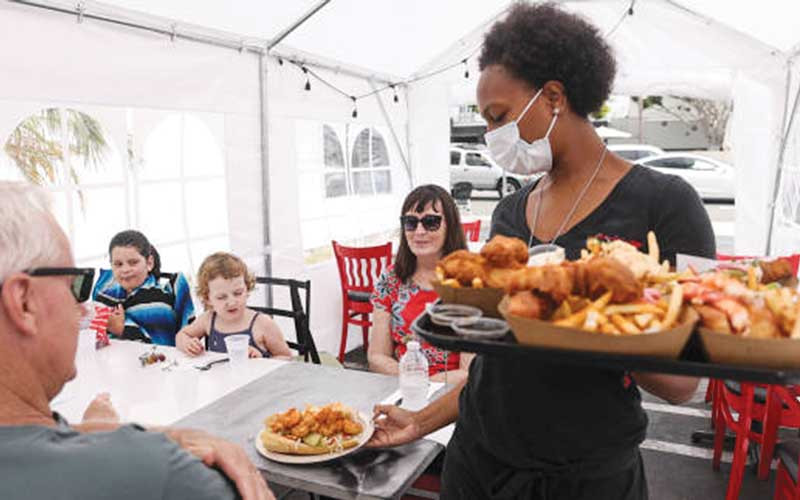
SHE had been noticing his sexual advances for some time. On a daily basis, he would pass compliments about her body, like a cheetah mastering the movements of its prey.
In most instances, he would ogle at her in a way that made her uncomfortable.
It got worse to a point that he began issuing threats of dismissal from her job if she kept objecting to his sexual advances.
On several occasions, he summoned her to his office whenever his wife was not around and would shower her with compliments that were filled with sexual connotations. And, indeed, she was blessed with the body of a real African woman.
Tariro (not real name) reminisces about the painful days of her life in the streets of Johannesburg, South Africa, working at a restaurant between Jeppe and Delvers Street.
What other option did she have? Give up and go back home with nothing? Or just swallow her pride and allow herself to become just a piece of meat in the middle of the Johannesburg jungle infested by sexual perverts?
A number of foreign women are subjected to this in the streets of Johannesburg, where their accommodation is tied to their employment.
That makes their situation a tricky one, eventually driving the women into desperation and their employers are usually waiting eagerly to grab them like pieces of braai meat.
- Mavhunga puts DeMbare into Chibuku quarterfinals
- Ndiraya concerned as goals dry up
- DeMbare’s double boost
- ‘Zifa suspension won’t affect player transfers’
Keep Reading
The situation is worse when one is undocumented and earns a minimum salary of R350 a week. It is worse when one is working for an Ethiopian, Indian or Nigerian.
“At first, I said ‘no’, but due to my situation, I had to send money back home and I could not afford to lose my job, so he had his way with me, unprotected, and I did not report,” Tariro said.
Despite having made the tough decision which she thought would save her, things got worse. She got pregnant and was fired from her job and later gave birth in the most trying situation.
Tariro (20) expressed her lack of faith in the police as far as protecting her was concerned.
Instead, she kept quiet as she also watched her fellow female workmates go through the same ordeal she went through.
For women working in foreign lands, sexual harassment does not happen to a few individuals. In some cases, it affects the female majority, who in fear of deportation, are not willing to speak out.
“Some days after having his way with me, he would get my workmate inside his office. We couldn’t ask what was happening,” Tariro added.
Sonke Gender Justice policy development advocate Mpiwa Mangwiro emphasised the need for people from all nationalities and backgrounds to report all forms of gender-based violence (GBV) without fear.
“Normally when we get cases like these, we refer them to organisations like People Opposing Women Abuse, where they can get therapy, counselling while monitoring them as they get assistance from the police,” Mangwiro said.
According to the crime statistics released by Ministry of Police recently, there was a 6,7% decrease in sexual offences in South Africa.
Research shows that two-thirds of South African organisations that provide GBV services do not provide services to immigrants.
This, however, has left people like Tariro exposed to various kinds of abuse.
Africa Diaspora Workers Network representative Janet Munakamwe admitted that dealing with the issue of GBV, especially on foreign women, is challenging because most of them tend to withdraw their cases.
“There was a case that involved an employer from the United Arab Emirates and a maid from Zimbabwe. Both husband and wife sexually harassed their maid who then reported the case to one of the unions here,” Munakamwe said.
“It was brought to my attention and when we tried to intervene, she went mute and I guess she was intimidated. This happened in June 2022.”
Although life is generally tough for most foreign women at most workplaces in the diaspora, some employers go out of their way to create safe spaces for immigrant women.
“Company owners should pay more attention to what happens in their companies in their absence or presence. I put cameras in every corner of my restaurant to ensure that everyone acts appropriately and no one is taken advantage of. Up to this day, I am proud to say that we haven’t encountered such a complaint from my workers or managers,” said one South African bakery and café owner Daniele Demmissie Simme.
As for Tariro, she continues to scrub floors to provide for her baby, with the hope that one day, she would cease to be treated like a piece of braai meat.











